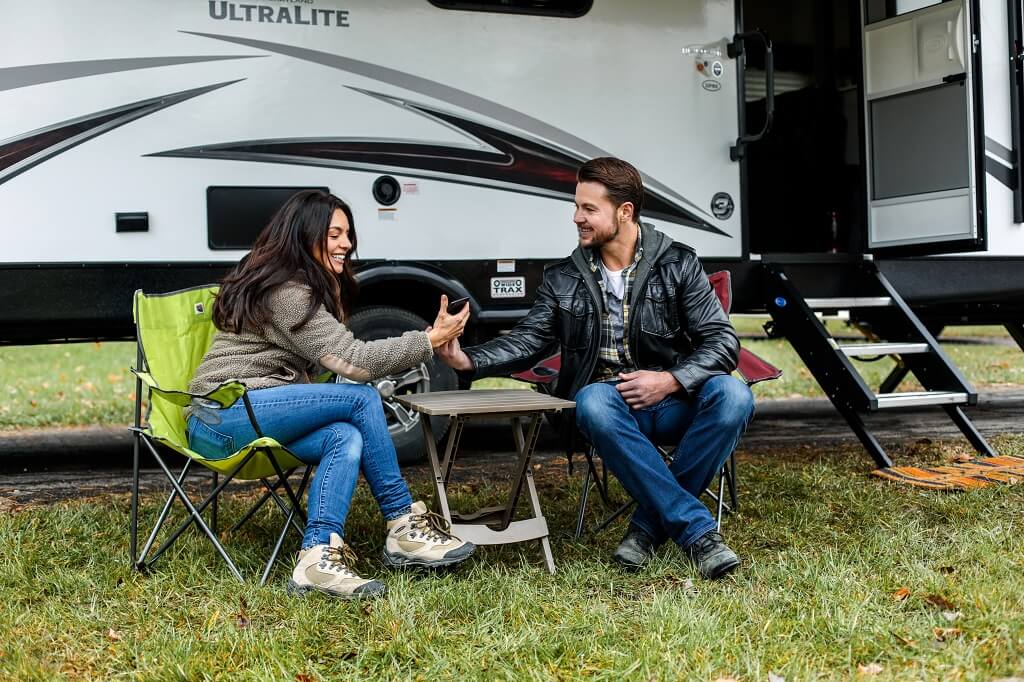Taking road trips in your RV is a great and affordable way of traveling. With your RV, your whole family can go on a trip with you while enjoying the comforts of a home and a variety of family-friendly camping destinations.
Understandably, travel days and going on long drives can be tiring. Also, kids can be bored and whining, especially on rainy days at the campsite. Consequently, this article discusses tips for surviving long RV family road trips helping you enjoy your ride. We also discuss tips for arriving at your destination safely and having a fun vacation your kids will talk about for years.
Tips For RV Traveling
Avoid Overloading Your Schedule
You may want to cram your schedule when traveling to make the most of your time. It is best to schedule free time, especially when traveling with kids, as tempting as it may be. Seeing several museums and monuments back to back can make kids cranky. Therefore, you should aim at visiting a big attraction per day. Scheduling free days where kids play and explore at their leisure is best. Although it may seem like you’re throwing away valuable education time, playing by themselves or with others help kids learn a lot. In addition, play helps children recharge, avoiding crankiness and tantrums.
Ensure You Get To Your Campground Before Dark
Seeing camping spot numbers or determining whether you’ve parked safely can be quite challenging in the dark.
Mapping out your trip to reach your overnight parking spot before dark is advisable. Also, seeing your surroundings is essential whether you’re driving into an RV park, a campground, or a place in the woods for boondocking. Boondocking is RV language for spending the night in a free place without electric or water hookups.
Once it’s dark, seeing camping spot numbers or determining whether you’ve parked safely is difficult. Also, waking up and not recognizing your surroundings is not something you want, and it can be upsetting to wake up in a new place every morning.
Setting Up And Breaking Down Camp
Setting up camp is the biggest challenge of going on trips. Therefore, your camps orientation is very important. It is best to hook up your electric and safer systems after parking and leveling your RV. Also, if you have slides, you can fully enjoy their comfort by extending them, flipping on the frig, and turning on the heat or AC. Afterward, you can unpack and enjoy.
When you’re breaking down camp, retracing your steps allow plenty of time to pack up, shut down systems, and secure anything loose to prevent your belongings from bouncing on the road. Your last stop before leaving camp is a dump station for emptying your black water tank. Afterward, you can hit the road.
Taking time out to chat with other RVers at your campground and noting several ways people set up camp is great. Because everyone has experiences or tips, they can save you time and ease your travel. Furthermore, the RV travel community is a notoriously friendly one where everyone wants you to be passionate about RV travel like they are.
Fill Your Gas Often
Ensure your tank doesn’t go much below half a tank. It is very easy to get accustomed to driving your vehicle till your tank is close to empty just because you know you can get a gas station within a few miles.
Nevertheless, passing through rural areas when driving long distances is inevitable, and gas stations may be hard to come by. Furthermore, relying on your vehicle’s typical fuel consumption is not advisable because driving at varying speeds, pushing against the wind, and up and downgrades impact your gas mileage. In addition, because there is no cell phone service guarantee, running out of gas leaves you stranded till someone stops to help.
The Importance Of Water
When you’re on an RV tour, access to clean, tasty, and safe water is an essential issue to deal with.
You can get chlorinated city water from most campgrounds and well water from other campgrounds to use in your RV. Nevertheless, you don’t know the kind of water accessible to you on the road. Therefore, an RV water filter is a must-have to avoid drinking water with a strong chlorine taste or to bathe with cloudy water.
Using an RV water filter during your trip enhances your experience when drinking and using water. Additionally, hookups at campsites or picnic areas contaminate water with substances like rust, sediment, large particulate matter, chlorine odor, and taste. Using an RV water filter helps filter out any unwanted matter in your water.
Apart from removing water contaminants, using certain RV filters before the water enters your RV is ideal for protecting your RV pipes and valves from eroding due to sediment, rust, and other water contaminants. Additionally, these filters prolong your RV’s equipment and internal plumbing life. Therefore, using an RV water filter saves you a lot of money on maintenance.



